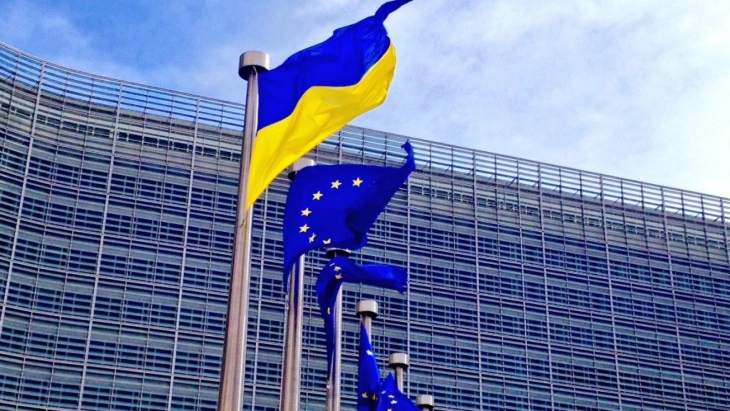EU plan would transfer profits from frozen Russian assets to Ukraine
- The European Commission on Tuesday proposed the first steps towards using revenues from frozen Russian state assets for Ukraine's recovery and reconstruction.

Brussels, 12 December 2023 (dpa/MIA) - The European Commission on Tuesday proposed the first steps towards using revenues from frozen Russian state assets for Ukraine's recovery and reconstruction.
The assets were frozen last year after the European Union started to impose sanctions on Russia over Moscow's full-scale invasion of Ukraine.
All transactions in connection with the management of reserves and assets of the Russian central bank are prohibited.
According to the commission, Russian assets worth more than €200 billion ($216 billion) are immobilized in the EU, the large majority of which are held in Belgium and handled by clearing company Euroclear.
The assets may be frozen, but they are generating revenues in the EU.
"Over time these assets have generated more and more liquidity. Some bonds have generated revenues in terms of dividends, some securities have matured and so the principal has turned into cash," an EU official said.
Under Tuesday's proposal, Euroclear would manage and register these revenues in a dedicated accounting system and would be prohibited from distributing them to shareholders or other third parties, the official said.
EU states are to scrutinize and approve the proposal before the commission can propose further steps towards using profits from frozen Russian state assets for Ukraine.
Ukraine's financial needs are immense. War damage to date is estimated to be in the high three-digit billion range.
The proposal is based on a decision by EU leaders in October to utilize "any extraordinary revenues held by private entities stemming directly from Russia’s immobilised assets" for the benefit of Ukraine.
Euroclear estimated the proceeds linked to EU sanctions at around €3 billion in the first nine months of 2023.
How to use the frozen Russian assets has long been the subject of debate in the EU.
Seizing the assets themselves and making them available to Ukraine is considered difficult both legally and politically. Sanctions are by their nature temporary measures that can be reversed if the reasons for which the restrictions were imposed no longer exist.
Some EU states were also concerned that the seizure of assets from a sovereign state could set a precedent with potentially undesirable consequences.
In October, Belgium announced that it was planning to use around €1.7 billion, generated from the taxation of the proceeds of the assets, to support Ukraine in the coming year.
Photo: MIA archive







